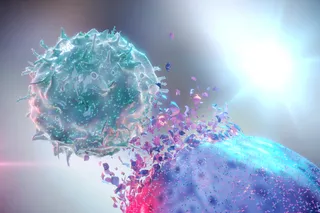Some might call skin the unsung hero of organs. It provides waterproofing, mediates sensation, guards against germs, and—as if that’s not enough—now researchers believe it may serve as a valuable repository of brain cells.
Last spring, scientists at the Salk Institute in California announced the creation of a technique for transforming simple skin cells scraped from patients with schizophrenia into functional neurons, a major step toward more personalized, noninvasive approaches to drug testing. “Psychiatrists give patients first line, second line, third line drugs, hoping that one will work,” says Salk neuroscientist Fred Gage, who led the research. Pre-screening drugs on patient-derived cells could increase the odds of picking the right drug from the beginning.
After collecting skin cells from people with and without schizophrenia, Gage and team genetically reprogrammed the cells to become pluripotent stem cells, with the youthful ability to give rise to any of the more than 200 ...














